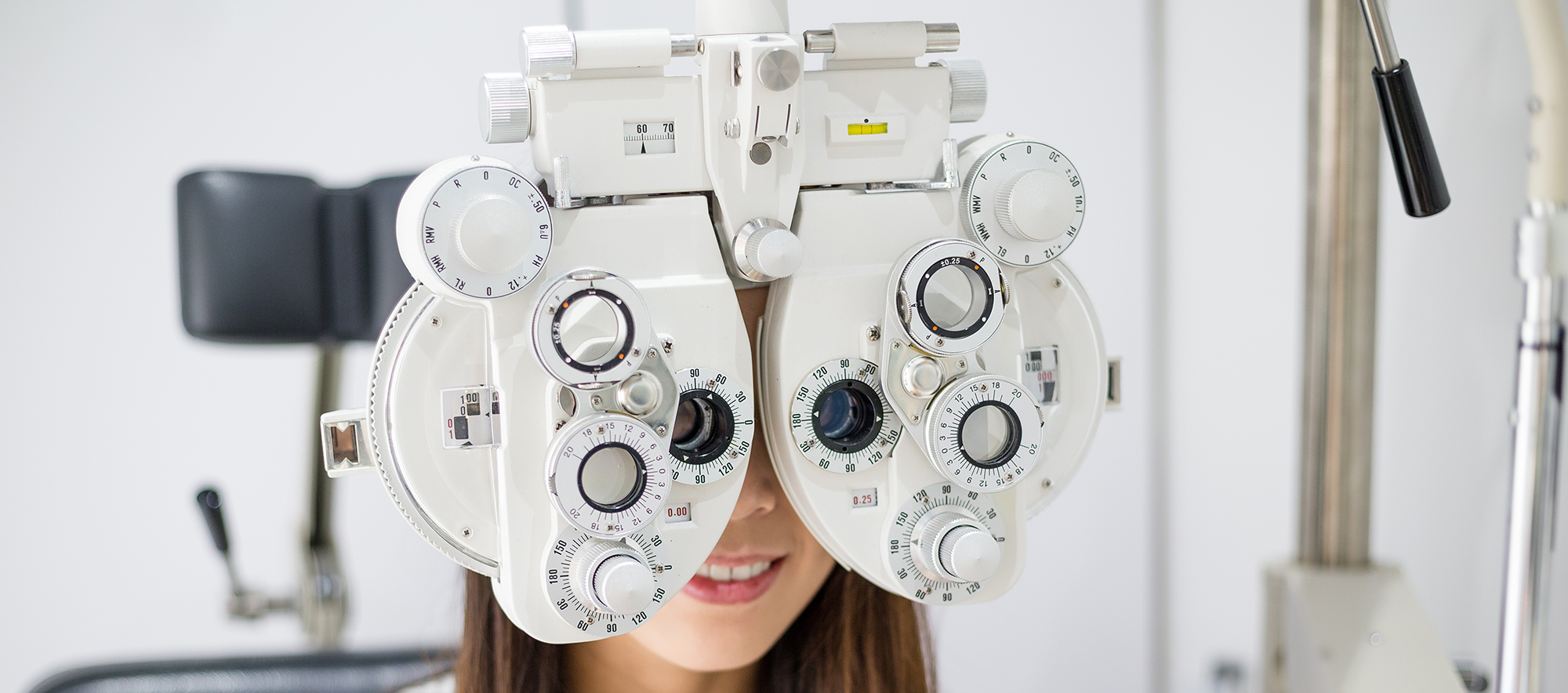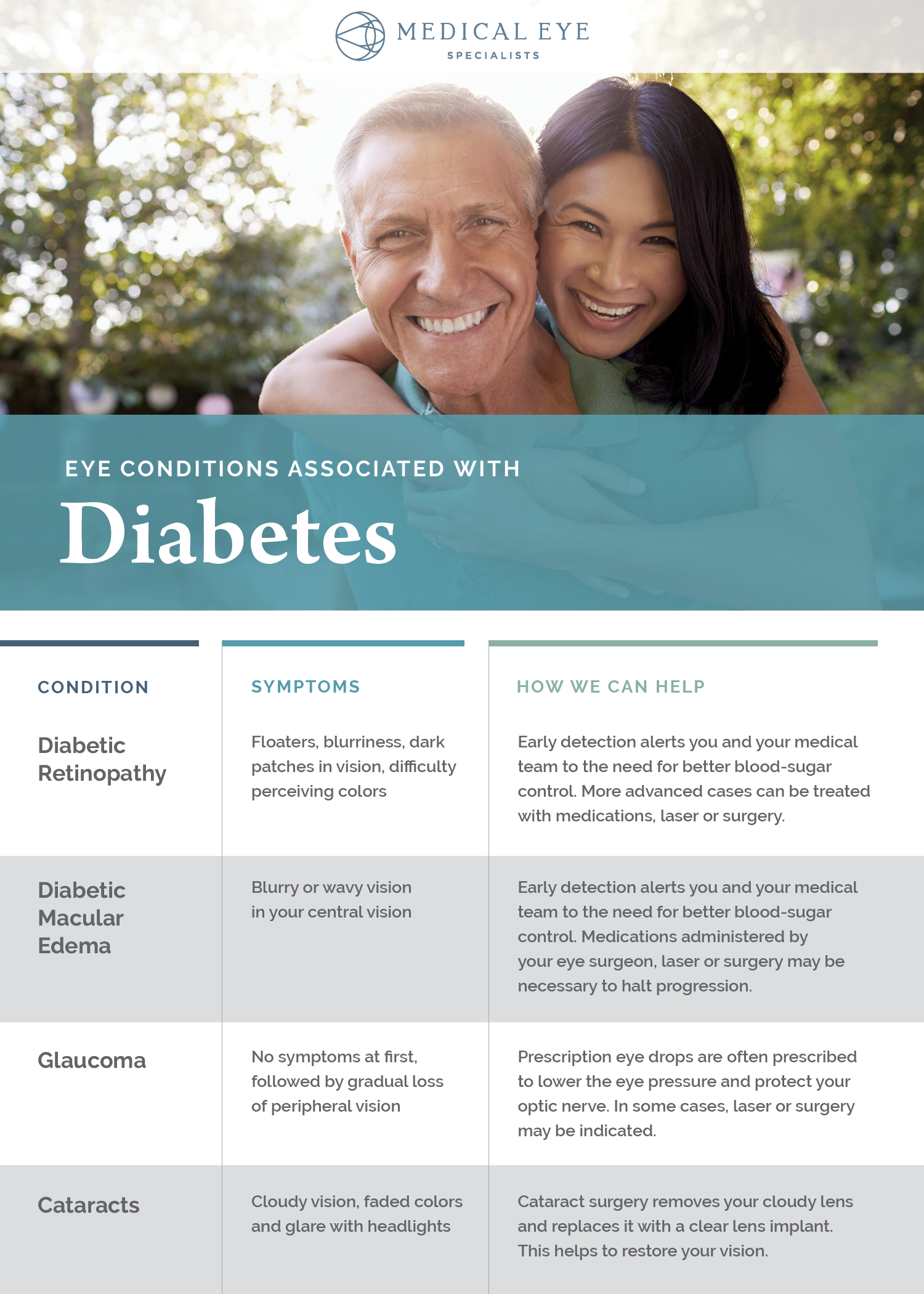
How Your Annual Exam Helps Protect You from Diabetic Eye Disease
If you’re living with diabetes, you know that good self-care is essential. Controlling your blood sugar, maintaining healthy blood pressure and cholesterol levels, and exercising keep you healthy. But when it comes to protecting your vision, you might not realize there’s one other powerhouse in your diabetes-care toolkit—one that takes just an hour or two each year but can make all the difference. It’s your annual eye exam.
Diabetes and Your Eyes
Blood-sugar management affects your vision. When your blood glucose is too high, even for short periods of time, your eyes’ lenses can swell. This can make your vision blurry. When your blood glucose stays too high over time, the tiny blood vessels in the retina, at the back of your eyes, can weaken. The weak areas can start to leak a fatty protein called “exudate” into the retina. Or blood can seep into the retina. Or the blood vessels can become so damaged that blood flow to the eye is lessened or blocked. When any of these things happen, your retinas can become damaged, and your sight can worsen.
Catching Problems Early
The good news is that getting an eye exam once a year helps safeguard your vision. In their earliest stages, diabetic eye diseases often have no symptoms. But when your doctor examines your eyes, we can catch developing problems before permanent damage sets in. By dilating your pupils, we can see your entire retina (including the part of the retina called the macula) as well as your optic nerve. And when we measure the pressure in your eyes with that little puff of air, we’re checking for early warning signs of glaucoma.
So if you have diabetes, we are your partners in helping you protect your eyesight. Schedule your annual exam with any of our providers or for any of our locations by calling 406-587-1245.

Adapted from the American Academy of Ophthalmology and the National Institute of Diabetes
Comprehensive Eye Care
From routine eye care to medical and surgical eye treatment, our ophthalmologists and optometrists are focused on your vision and the health of your whole eye.



